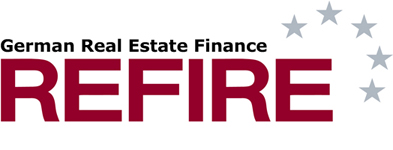
Grand City Properties
Grand City Properties
Grand City Properties - Berlin
We reported in a recent issue of REFIRE on the Luxemburg-registered Grand City Properties, a medium-sized listed German housing investor which had just successfully placed two new bonds of €100m each, to follow up on a €100m convertible bond launched last October 2012 and two capital increases totalling €50m.
While institutional investors have been scrambling for the last eighteen months to get their hands on German residential housing exposure, this was a company that we did not know much about and had been barely visible on our radar. Still, 8% return to investors on its first bond and 6.25% on its recent one had us getting curious.
We decided it was time to find out more, and sat down recently in Berlin to talk to supervisory board member Christian Windfuhr. Before arriving at Grand City Properties, Windfuhr was a CEO at Maritim Hotels and Mövenpick Hotels, a board member at tourism group TUI with responsibility for hotels, as well as a senior manager at hotel groups Holiday Inn International, Kempinski, and Southern Sun hotels.
Grand City specialises in identifying undervalued residential property portfolios with upside potential in occupancy and rental rates. The ideal size is between 300 and 2,000 units for between €5m and €20m – prior to our discussion, the company had just acquired a further 2,000 units to bring its current holdings up to 18,000 residential units, mainly located in North Rhine-Westphalen and Berlin, with a number of properties in Nuremberg, Dresden and Mannheim. The strategy is not dissimilar to that of companies like TAG Immobilien or Corestate Capital i.e. through refurbishment lowering vacancy levels, raising rents and thus portfolio values, and turning over stabilised assets while adding to overall holdings – the target by year end is 20,000 units.
The strategy seems to be working, with valuation upgrades due to improvements contributing €78m on top of normal profits of €60m last year 2012. This year at the halfway stage €48m of the €69m six-month profit was attributed to revaluations. Windfuhr says the company aims to buy assets at a factor of 8, 9 or 10 times annual ‘cold’ rent and upgrade them in 2-3 years to valuations of 14-15 times rent, when they are stabilised at less than 5% vacancy rates from an initial 15-25% vacancy and can be sold on or held in stock.
Interestingly, Windfuhr talked about the company’s focus on demographic shifts in the population, and how it tries to anticipate where fresh demand is likely to emerge, whether through new employment opportunities or other factors. Another strength he pointed to was Grand City’s own in-house property management competencies, with jobs being outsourced only for very specialised skills. This led to much more retained knowledge and closer connection with tenants, he said.
On financing, Windfuhr says that 25% of all Grand City’s properties are mortgage-free, without encumberance. Borrowings on assets are for a period of 4-10 years, all hedged, with an average loan-to-value ratio of 43.9%, lower than many of its peers at an average of 55% - which Windfuhr describes as a “conservative capital structure with a low level of leverage risk”. The equity ratio is currently 40%, with liquidity of €136m available for acquisitions.
For the first six months of 2013 Grand City posted FFO funds from operations of €8.1m, up from €3.6m at the same point last year. The NAV net asset value is put at €448m – a discount of 7% to the company’s current market cap of €483m, which is moderate compared to most listed German residential companies bar Deutsche Wohnen and GSW – the only companies who are trading at a premium to NAV, and who are in merger talks with each other (see elsewhere in this issue).
Grand City is awaiting a ratings upgrade from S&P from its currently lowly rating of below investment grade (BB-), but its fundamentals appear interesting, even if there is no analyst coverage of the stock yet. Institutional investors holding stock include Edolaxia with 44%, Valuemonth Holdings 4.93% and Merrill Lynch with 4.54%.
